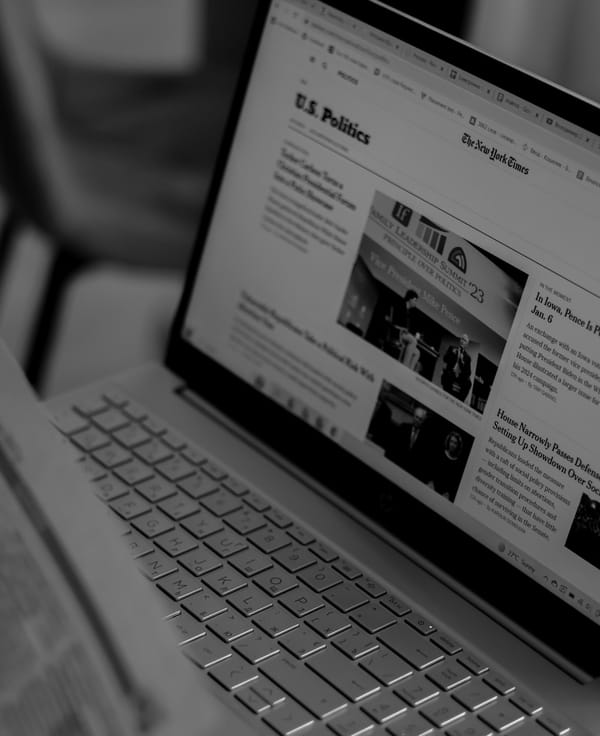1984 by George Orwell & How It Can Help Us Fight Authoritarianism
George Orwell’s 1984 isn’t just a novel—it’s a manual for understanding authoritarianism in its most insidious forms. Written in 1949, the novel has remained one of the most important books for recognizing and resisting totalitarian control, propaganda, mass surveillance, and political manipulation.

If Cosmos (Sagan) teaches us to think critically, then 1984 teaches us to see authoritarian tactics before it’s too late. Orwell breaks down how authoritarian regimes gain, consolidate, and maintain power—and his insights are terrifyingly relevant today.
The Core Warning of 1984
“If you want a picture of the future, imagine a boot stamping on a human face—forever.”
The key warning of 1984 is simple: Totalitarianism doesn’t just control people’s actions. It controls their minds.
Orwell shows how authoritarian regimes:
- Manipulate reality so people cannot trust their own memories.
- Destroy language to make critical thought impossible.
- Use surveillance to ensure no one feels safe to dissent.
- Make resistance seem futile by breaking people’s spirit.
Authoritarianism is about about controlling the state and your thoughts.
The Role of Surveillance: “Big Brother Is Watching You”
The phrase “Big Brother is Watching You” has become shorthand for government surveillance and loss of privacy.
- In 1984, the Party uses Telescreens, informants, and hidden microphones to ensure that no one ever feels safe enough to rebel.
- Even thinking rebellious thoughts is dangerous, this is called Thoughtcrime.
- People police themselves out of fear (self-censorship), meaning the Party doesn’t even have to punish everyone—just enough people to keep everyone terrified.
Why this matters today:
- Mass surveillance exists now. Governments track citizens through technology, cameras, and online activity.
- Self-censorship is real. People avoid certain topics for fear of backlash.
- The chilling effect. Fear of being watched makes people conform even when no one is watching.
A population that fears surveillance is easier to control. The more we accept mass surveillance, the harder resistance becomes.
Language as a Weapon: The Danger of “Newspeak”
"The past was erased, the erasure was forgotten, the lie became truth."
One of Orwell’s most brilliant warnings is the creation of Newspeak, a deliberately dumbed-down version of English designed to eliminate rebellion by eliminating the words needed to express it.
- The Party systematically reduces vocabulary to make certain ideas impossible to articulate.
- Words like “freedom” and “justice” are erased—if you can’t describe oppression, you can’t rebel against it.
- Newspeak forces people into simplistic, binary thinking, making them more susceptible to propaganda.
Why this matters today:
- The erosion of precise language makes real debate impossible. (e.g., “Fake news” being used to discredit real journalism.)
- Political buzzwords replace critical thought. When people use slogans instead of arguments, they stop questioning.
- Doublespeak (e.g., “War is peace, freedom is slavery”) exists today. Examples:
- “Enhanced interrogation” = Torture.
- “Collateral damage” = Civilian deaths.
- “Alternative facts” = Lies.
If you control language, you control thought. If people don’t have the words to express injustice, they can’t resist it.
The Destruction of Truth: Controlling the Past to Control the Future
“The Party told you to reject the evidence of your eyes and ears. It was their final, most essential command.”
In 1984, the Party rewrites history in real-time to fit its needs. Winston’s job at the Ministry of Truth is to erase and alter records so that the Party is always right, even when it contradicts itself.
The Party’s motto:
- “Who controls the past controls the future.”
- “Who controls the present controls the past.”
Why this matters today:
- Historical revisionism is happening right now. Textbooks are altered to fit political narratives.
- Leaders contradict themselves but claim consistency. (E.g., Politicians lying about past policies and gaslighting the public.)
- People lose faith in truth itself. When the public can’t agree on basic facts, authoritarianism thrives.
If truth is whatever the government says it is, resistance becomes impossible.
The Use of Fear and Hate: The Two-Minutes Hate & The Perpetual Enemy
"Within thirty seconds any pretense was unnecessary. A hideous ecstasy of fear and vindictiveness... seemed to flow through the whole group like an electric current."
The Party uses fear and hate to keep people obedient.
Two-Minutes Hate: Citizens must participate in ritualized rage against an enemy (Goldstein), reinforcing blind loyalty to the Party.
Perpetual War: The Party keeps the population in constant fear by ensuring they are always at war. This justifies:
- Rationing & economic hardship
- Increased surveillance
- Elimination of civil liberties
Why this matters today:
- Authoritarians use fear to stay in power. “We must give up rights for security!”
- Scapegoating is a tool of control. Blaming minorities, immigrants, or political opponents distracts from real issues.
- Perpetual war keeps people afraid. When people live in constant crisis, they don’t question authority.
Fear keeps people compliant. If you’re too afraid to question power, you become easy to control.
Psychological Control: The Final Stage of Oppression
"Power is in tearing human minds to pieces and putting them together again in new shapes of your own choosing."
Orwell doesn’t just warn about external oppression, he warns about breaking people from the inside. Winston wants to rebel, but the Party slowly destroys his resistance. Torture (Room 101) is used not just to punish, but to make Winston love Big Brother.
The ultimate goal is not just obedience, but total submission.
Why this matters today:
- Oppressive systems don’t just want compliance—they want you to internalize their ideology.
- Propaganda aims to make resistance feel impossible. (“You can’t change the system, so why try?”)
- Tyranny wins when people believe they deserve it. If people accept oppression as normal, they stop fighting back.
The ultimate form of power is making people love their own oppression.
How 1984 Helps Us Fight Authoritarianism Today
Orwell wasn’t just writing fiction—he was giving us a roadmap to recognize and resist authoritarianism.
- Question Surveillance – If a government tracks everything, ask why and who benefits.
- Defend Language – Fight against the erosion of clear, critical thought.
- Protect Historical Truth – Resist efforts to rewrite history for political convenience.
- Watch for Scapegoating – Leaders who rely on hate and fear are dangerous.
- Stay Skeptical of Power – If a government demands blind loyalty, it’s hiding something.
- Never Accept Oppression as Normal – Tyranny only wins when people stop believing in the possibility of freedom.
1984 isn’t just a novel—it’s a warning. The best way to fight authoritarianism is to recognize it before it takes hold. Orwell gave us the tools. Now it’s up to us to use them.



